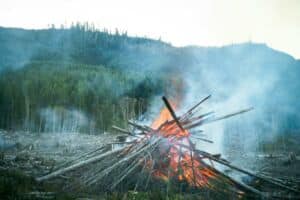The future of the Amazon is on your plate
Is the EUDR working for people and planet? PLANET4B project looks at Dutch-Brazilian beef and soy trade through the lens of intersectional environmental justice in one of its case studies. Via 20 interviews on both sides of the supply chain, PLANET4B considers the underlying drivers of environmental injustice, for humans and non-humans.
Intensive agricultural trade is often associated with environmental injustice, affecting marginalised communities while depleting forests, rivers and biodiversity, so the 2023 Regulation on Deforestation Free Products (EUDR) was a welcome step.
Aside from forest degradation, rising emissions and pesticide pollution, cattle ranching and soy monocultures are key drivers of land use change and the violation of human and non-human rights in Brazil’s Amazon and Cerrado biomes. Land grabbing, exploitative labour relations, poisoning of peoples, forests and rivers with “agrotoxins” and infrastructural projects that cross Indigenous and traditional populations’ lands, threaten their culture, livelihoods and territories.

Photo by Everett Bumstead via Pexels
Brazil is the leading soy exporter globally, while the Netherlands is the main soy importer in the EU, and international beef trade directly connects the Netherlands with deforestation and land conflicts in Brazil. Yet, no previous study has mapped intersectional environmental injustices in these supply chains. Drawing on data from 20 semi-structured interviews with environmental NGOs, businesses, government and academics from both countries, researchers from Radboud University, the Netherlands, identified those causing the issues, as well as the most impacted.
Building on this research, we believe for the international trade of beef and soy, the EUDR may be a valuable legislation. We hope future iterations and specific recommendations may increase the capacity of the legislation to also tackle the underlying causes of environmental injustice.
Our paper is under review, so watch this space for when it’s released.
